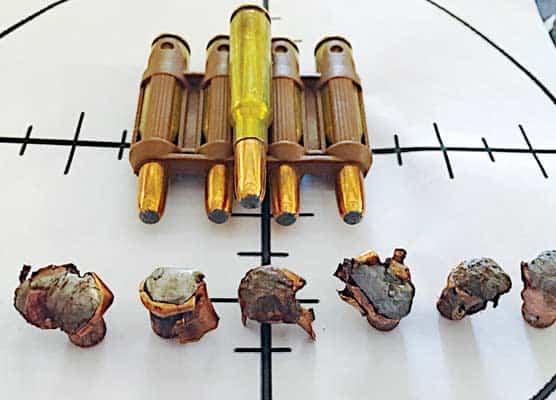Since Mowing The Lawn
Is Outta The Question
Time For A Book, Isn’t It?
Scoop the cat outta the easy chair; place on sofa. Carefully step over the snorin’ dog, stick the poker into the fire and stir things up a bit. Add two splits of seasoned larch, the heartwood. Fetch mugga coffee, perhaps “anointed” coffee, and carefully place on coaster. Pat shirt pocket—yup, reading glasses ready. Wait a minute! What’s missing? A good book! Let me help, OK?
"Invisible Armies" By Max Boot
The subtitle is, “An epic history of guerrilla warfare from ancient times to the present.” The core message is that what we tend to think of as “conventional warfare,” historically, is the exception, and “unconventional;” i.e., partisan and guerrilla warfare, has been the norm for the past 30 centuries. That’s a lot of ground to cover, and it takes Boot, a prodigious researcher, and 567 pages to do it.
The appendix, page notes and index alone are the size of many modern novels.
As he did in “The Savage Wars of Peace,” Boot goes far beyond facts and figures, sketching the individuals, the scenes and stories in a highly readable form. The first great empire on record, Mesopotamia, fell to nomadic raiders from the Persian highlands. Since then, time after time, mighty nations have been brought down by relatively weak and disorganized forces, producing two valuable lessons: First, that given the right conditions—or the wrong responses by the “target country”—the biggest, strongest nation can be overwhelmed by small but determined or desperate outside forces; second, that mighty nations can find the invasion of an undeveloped “weaker” state relatively cheap and easy—and then be bled dry, completely unable to occupy that conquered country.
You’ll know some of the conflicts, but others, like the Peninsular War of 1808-1814, Xiongnu vs. Hon, 200 BC-AD 68, Persians vs. Scythians, 512 BC, Garibaldi’s 40 years of war on two continents, might be fascinating new ground for you. One chapter alone — “The Guerrilla Paradox: Why the Weak Beat the Strong”— makes the book worth the bucks.
"Steaming to Bamboola: The World of a Tramp Freighter" By Christopher Buckley
I heard the term routinely as a kid in the Pacific. Applied to small, old, paint-peeling, rusty chuffing freighters—the lifeblood of the seas—it mostly meant “steaming to various out-of-the-way ports; the backwaters and reefed-in atolls the big ships couldn’t get into, carrying low-class cargos nobody else would fool with.” For many of those who crewed the tramp freighters, it also meant “steaming to I-don’t-know and don’t-care-where.”
I’m sure you know Chris Buckley’s father, the author, political commentator and founder of the National Review, William F. Buckley. Christopher, the son of this intellectual and highly successful figure, stuffed his prep-school blazer in a drawer and signed as a deckhand on a Norwegian tramp when he was only 17 years old. Ten years later, after establishing his own bona fides as a writer (he was managing editor of Esquire at 24), Chris went back to sea as an ordinary rust-scrapin’, crate-wrangling, watch-standing crewman on yet another aging tramp, the Columbianna.
She was pulling out of Charleston, heading for the North Sea ports bearing whiskey, machineguns, refrigerators and 38 seamen: steaming to Bamboola. The ship herself is a character, one of a dying breed replaced by modern, computerized containerships, but it is the men, from the captain making his 100th Atlantic crossing to the motley multinational roughneck crew who add the color — and the craziness — to the story.
Whether you know the sea or not, it’s a great read, written with style, insight and irony.
"Chimpanzee Politics" By Frans de Waal
Chimpanzees rarely wear suits and ties, and they don’t do at all well walking in high heels. Shaving and applying makeup seem to be beyond their grasp or maybe just out of their interests. But depending on the study you read, humans and chimps share between 94 and 99 percent of their DNA codes, and where it shows the most is in our behavior, specifically, our political behavior. If you define politics as a social process determining “who gets what, when and how,” distinctions between human and chimp behavior virtually disappear. The chief difference, says the author, is that chimps conceal their motives less effectively than do humans; that “Their interest in power is not greater than that of humanity; it is just more obvious.”
I first read “Chimpanzee Politics” over 20 years ago, when it was a new and groundbreaking work, avidly read and studied by certain serious folks in intelligence analysis; the dissectors and forecasters of human behaviors and intentions among our country’s actual and potential foes. The individuals and groups, the nations and social conditions have changed significantly since then — but not the basic behaviors. Those dynamics are timeless, hard-wired into our genes. This 25th-anniversary edition of the book simply updates the material with later related studies and observations.
Dominating and submissive behaviors, the formation of coalitions, manipulation of the strong by the weak, the art of the double-cross and coup d’état, the feigning of fear and pain, and the effectiveness — and failure — of bluffing, all of it is more clearly observed among chimps than between humans, but the goals and results are practically identical. After reading this book, you’ll see them played out all around you.
"The Revenge of Geography" By Robert D. Kaplan
In 1942, China was in ruins, occupied and devastated by Imperial Japan. Three long and bloody years of island-hopping Pacific warfare lay ahead for the United States. Hitler’s war machine held all of Europe and threatened the British home islands. At that time, in that situation, who would be arguing for a strong post-war alliance between America and a re-armed Japan? Who could declare that leaving Germany defeated and disarmed after a still-uncertain war could be disastrous for the Western powers? Who could foresee the emergence of China as a major economic power and global threat, so powerful that the Western Pacific “will be controlled not by British, American or Japanese sea power but by Chinese air power”? That was Nicholas Spykman, a Yale professor, great American strategist — and geographer.
“Geography,” he wrote, “Does not argue. It simply is.” China’s future, he explained, would most likely be dictated by its sheer size, its placement on the globe, its topography and climate; in other words, its geography.”
Why are Russians obsessed with the idea that other peoples covet the very earth of Mother Russia? What drives their tendency to cluster behind the walls of their forests, and always, always look with fear and suspicion toward the great steppes? Why is the Korean peninsula so critical to Russia, China and the US? Today, why do both Indian and Chinese strategists eagerly debate, study and quote Alfred Thayer Mahan, an American naval officer and geostrategist who died in 1914?
Got your attention? All I’ll say is, read “Revenge,” and you’ll never look at a country or a region the same way again. It’s serious reading, but it will hold your interest right to the end.
Connor OUT








